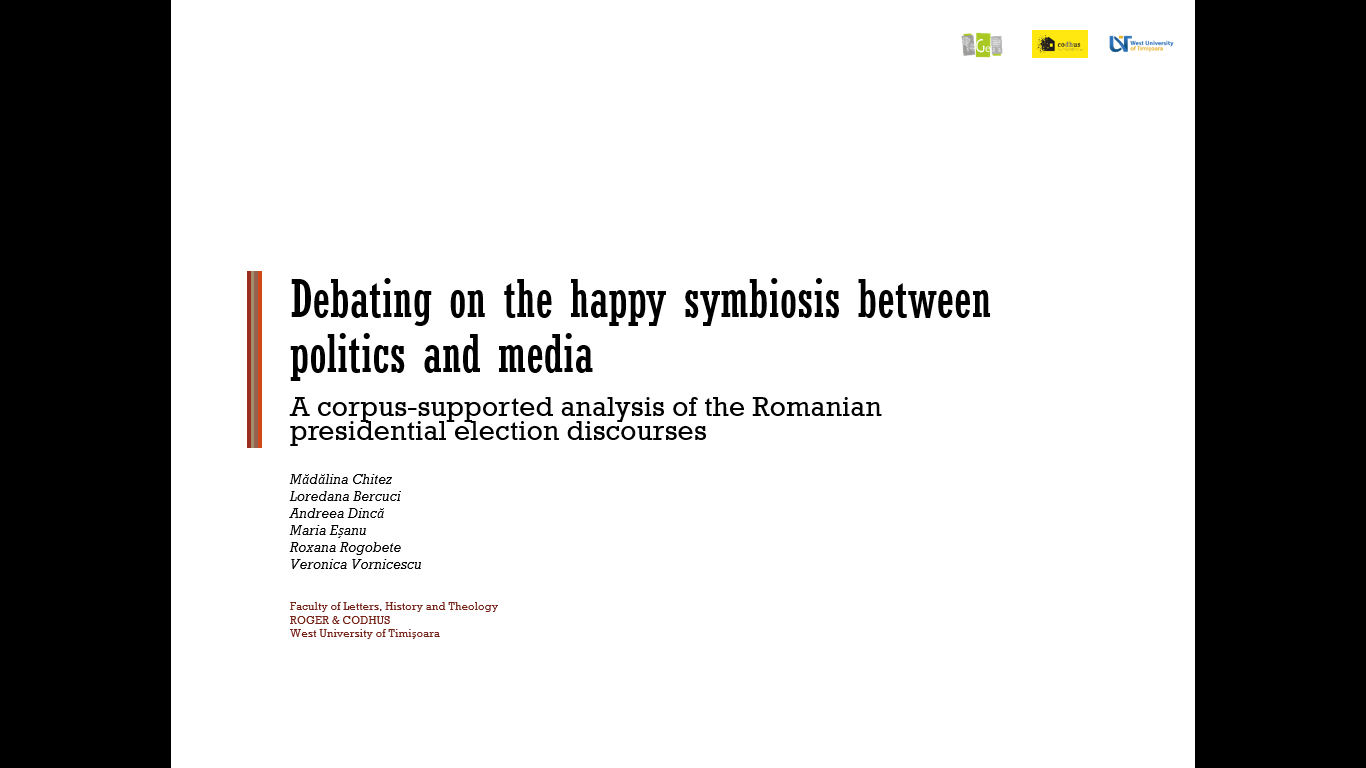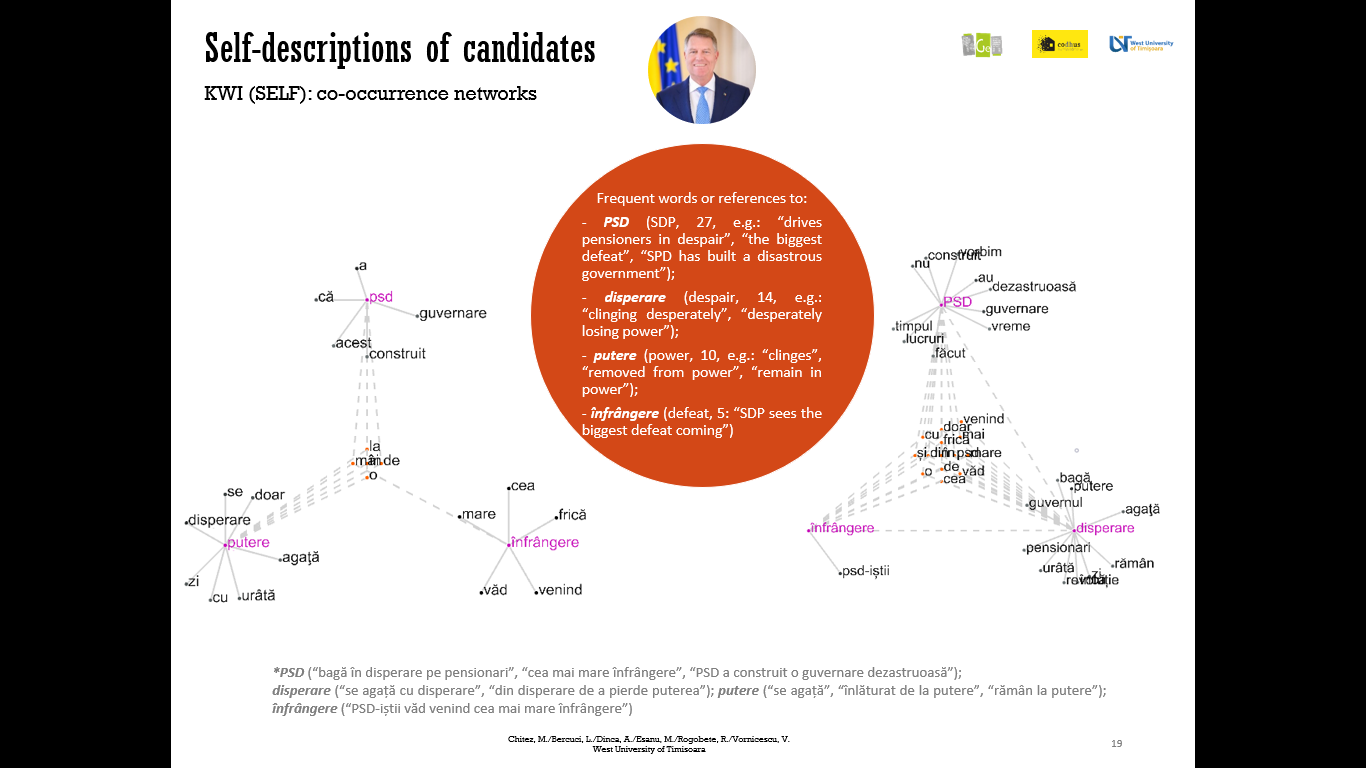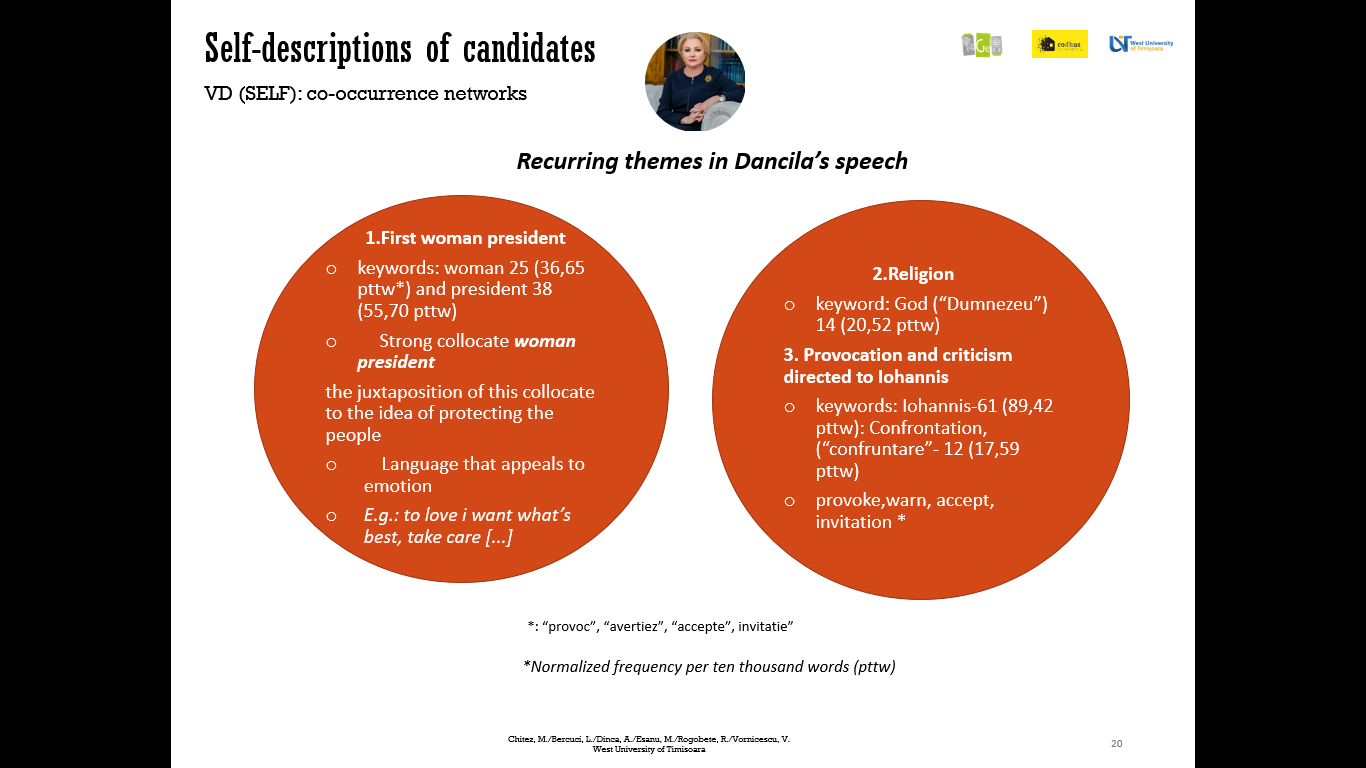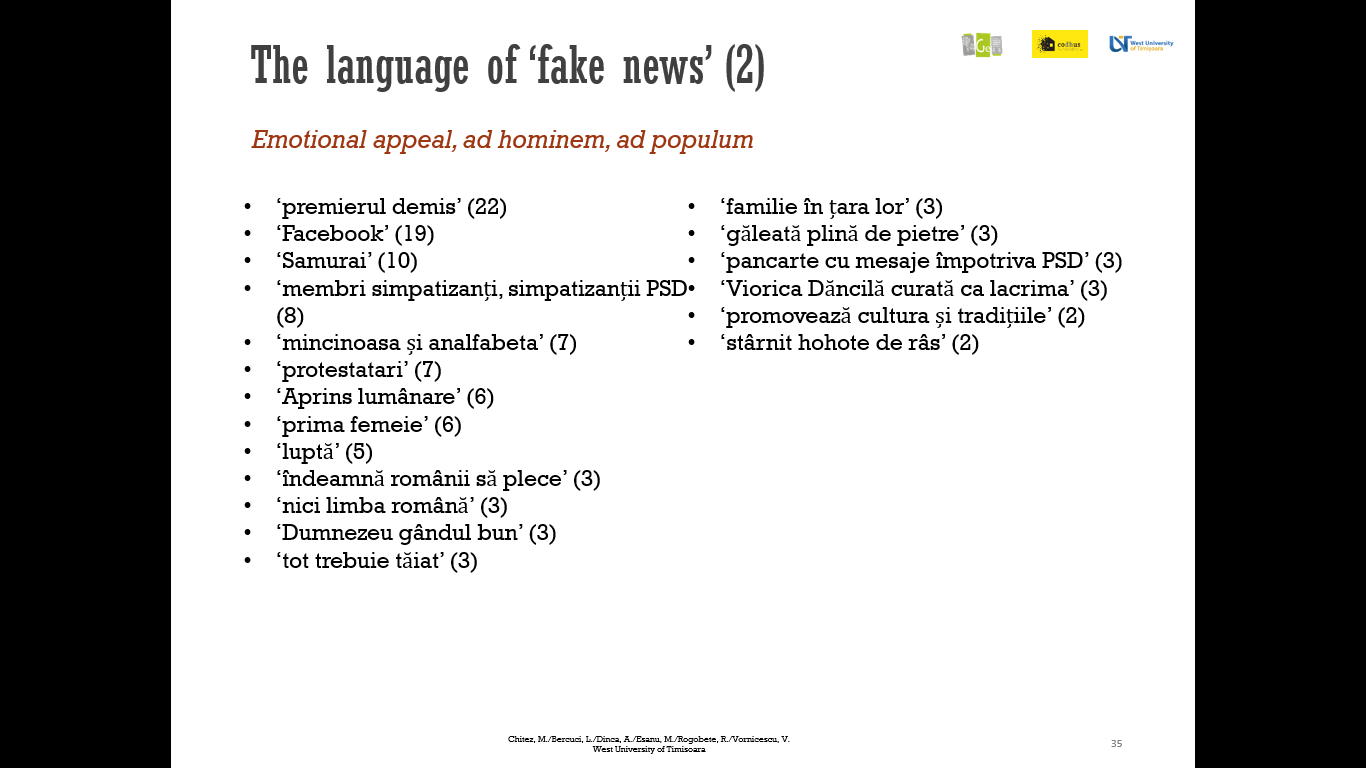29-30 November 2019, Timișoara Workshops on Research Methods (Text-To-Data), Timișoara
Mădălina Chitez, Andreea Dincă and Roxana Rogobete participated at Timișoara Workshops on Research Methods (Text-To-Data) and presented, at the Elections and media panel, the paper called Debating on the happy symbiosis between politics and media: a corpus-supported analysis of the Romanian presidential election discourses (co-authored with Loredana Bercuci, Maria Eșanu and Veronica Vornicescu).
Abstract:
Situated at the intersection between political sciences, cultural studies and linguistic disciplines, the analysis of political discourse is a complex and difficult undertaking. This is due to the multitude of variables and data collection challenges that need to be addressed, such as: contextual factors, selection criteria (discourse author, discourse sources etc.), data representativeness, data availability and assessment methodology. The present study launches a data-supported debate on the so-called “happy symbiosis” (Boorstin, 1987, p. 41) between the politics and the media which is, presumably, motivated by the belief that the battle for power becomes a “contest to dominate the citizen’s information” (ibid.). Looking at discourse and its linguistic characteristics through the lenses of corpus-assisted discourse studies (CADS), which are, frequently, concerned with ideological modelling of texts, the present study takes the extra step into quantitative linguistics, by merely measuring political discourse patterns and their written media coverage. Our data consist of political declarations of the four main candidates at the Romanian presidential elections in November 2019 (K. Iohannis, D. Barna, V. Dăncilă and T. Paleologu), and the newspaper articles reporting on their discourses. Data have been web crawled over a period of seven days, at the peak of the presidential campaign, from five visible news platforms, i.e. online journals, news websites, representative of the ideological spectrum. The two sub-corpora (P-SELF and P-ABOUT) contain about 50,000 words each, providing access to concordance and phraseology patterns highlighting major discourse topics, for each candidate, on the one hand, or capturing their reflection in the news, on the other (Pardington, 2013). We draw conclusions on the relationship between authentic pre-election discourse and the possible journalistic strategies to communicate it to the wider public. The study also illustrates the relevance of corpus-supported text analyses in political sciences while taping into the theme of fake news as a phenomenon that can be scrutinized linguistically.
Snapshot of first slide:

Presentation excerpts:



More information about the event here.
Impressions:
The event brought together researchers from fields such as Political Science and Education Science, as well as digital instruments and programming languages specialists, providing a good opportunity for ROGER members to find new digital methods that can be implemented in Humanities. The workshop revolved around quantitative analysis of data, with many addressed perspectives: from the coagulation of methodologies, internationalizing policies, the behavioural analysis of the social media or news platforms users, to the political sphere and scientometrics.
Blvd. V. Pârvan 4,
Timișoara 300223, Timiș County,
România
Phone: +40 256 592 741
E-mail: roger.projects@e-uvt.ro


